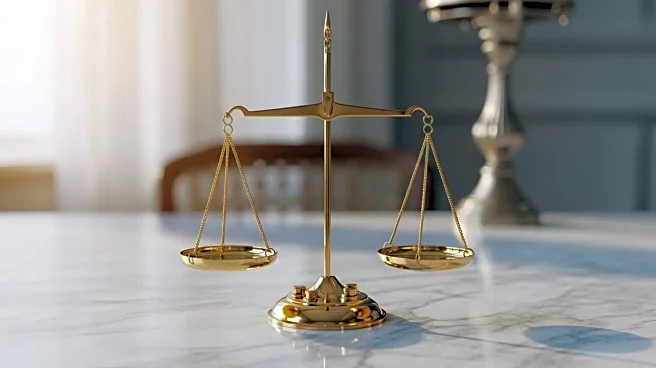What's Happening?
President Trump has asserted that prices in the United States are significantly lower, with minimal inflation affecting the economy. In a recent statement, he highlighted that energy prices, particularly gasoline, are at multi-year lows. He attributed this economic condition to the tariffs imposed on countries that have historically taken advantage of the U.S., claiming these tariffs are generating substantial revenue and strengthening the nation's economic position. Trump criticized the use of windmills, describing them as detrimental to states and countries that rely on them. His comments suggest a focus on traditional energy sources and a belief in the economic benefits of tariffs.
Why It's Important?
The statements by President Trump regarding low prices and minimal inflation are significant as they reflect his administration's economic policies and their perceived impact. The emphasis on tariffs as a tool for economic strength suggests a continued commitment to protectionist trade policies, which have been a hallmark of Trump's economic strategy. The claim of falling energy prices, if accurate, could have broad implications for consumer spending and economic growth. However, the criticism of wind energy highlights a potential conflict with renewable energy initiatives, which could affect policy decisions and investments in sustainable energy solutions.
What's Next?
The economic narrative presented by President Trump may influence upcoming policy discussions and decisions, particularly in the areas of trade and energy. Stakeholders in the energy sector, including those involved in renewable energy, may respond to Trump's criticism of windmills, potentially leading to debates over energy policy. Additionally, the administration's stance on tariffs could impact future trade negotiations and relationships with international partners. Observers will likely monitor economic indicators to assess the accuracy of Trump's claims and their implications for the broader U.S. economy.
Beyond the Headlines
The focus on tariffs and traditional energy sources raises questions about the long-term sustainability of such economic policies. The criticism of wind energy could influence public perception and policy direction regarding renewable energy, potentially affecting the U.S.'s role in global efforts to combat climate change. The economic narrative also underscores the political dimensions of economic policy, as Trump's statements may resonate with his political base while drawing criticism from opponents who advocate for different economic strategies.









